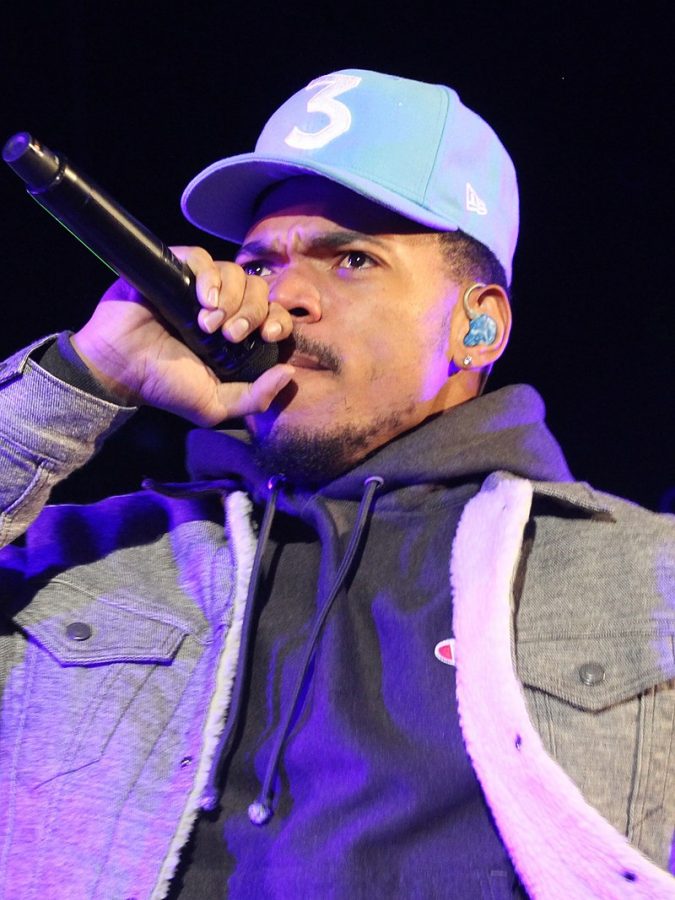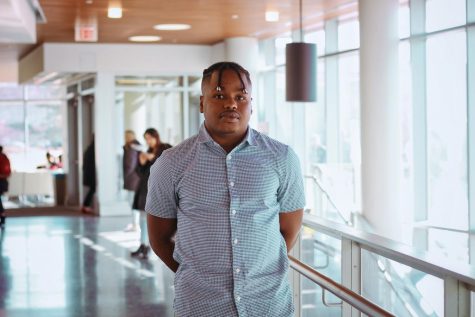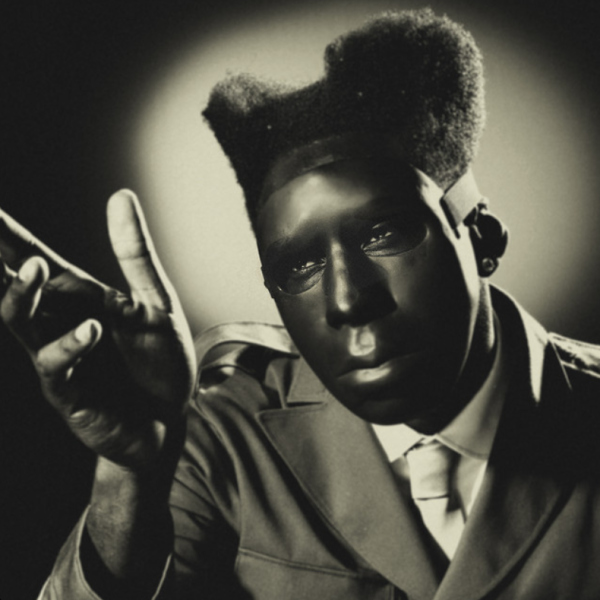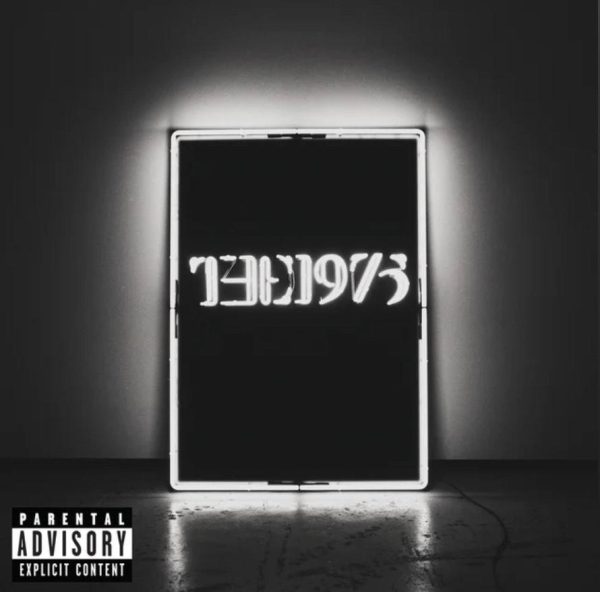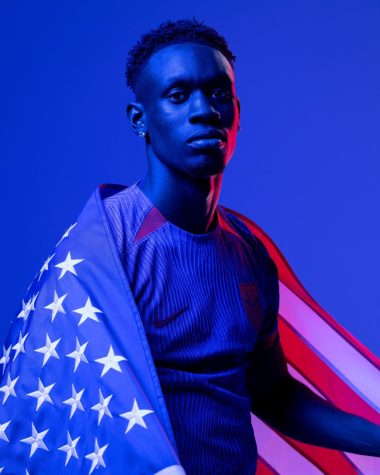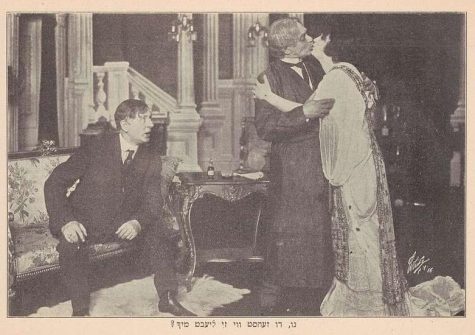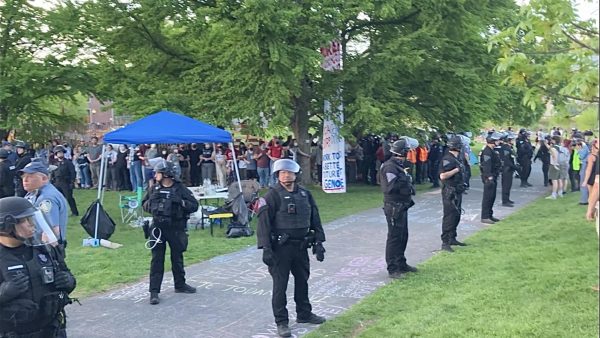Hip-Hop MVPs of the decade: 2016 and 2017
Chance the Rapper calls his shot, and Migos leaves their imprint on the “Culture”
For the next few weeks, Amherst Wire entertainment is bringing the best of the decade right to you. To do my part in contributing to our end of the decade content, I will be highlighting some of the most important moments from rappers in the decade. The schedule will go as follows:
Published: Kanye goes back to back (2010 and 2011)
Published: Chief Keef drills his way to the top / Kendrick Lamar sparks hip-hop’s cold war (2012 and 2013)
Published: The birth of a “Monster” / Earl Sweatshirt paints in shades of black (2014 and 2015)
Today: Chance the Rapper calls his shot / Migos put their imprint on the “Culture” (2016 and 2017)
Dec 31: ??? (2018 and 2019)
Without further adieu, here are my picks for 2016 and 2017.
2016: Chance the Rapper calls his shot
“We can’t be out here pleasin’ everybody / We know who we are” sings John Legend on the hook of the overtly ebullient introduction of Chance the Rapper’s “The Big Day.”
“The Big Day,” Chance the Rapper’s debut album and soundtrack to his wedding day, wasn’t made for the masses. And the masses certainly weren’t shy to let Chance and the rest of Twitter know how they felt about this album that wasn’t for them. While the previously stated lyrics on “All Day Long” are the most polite way possible for Chance to say he doesn’t give a damn what anyone thinks about his debut album and wedding day, the hate clearly got to him and likely had some part in the rerouting and eventual cancellation of his tour.
For an up and coming artist, this kind of backlash could derail their career and confidence as an artist, but Chance is far from up and coming despite this album being labeled as his debut. Chance the Rapper’s success in 2016 solidified his impact as an artist, and regardless of how music fans feel about his most recent work, his legacy as one of the most important artists of the streaming era can never be erased.
To fully contextualize just how important Chance the Rapper’s 2016 was, we have to look back at the beginning of the decade.
In 2010, Chance wasn’t close to being the rap star with Doritos commercials and a show on Netflix; he was just a high school kid in Chicago chasing his dreams of being a successful artist. Before releasing any solo projects under the moniker Chance the Rapper, Chancelor Bennett, then stage name Chano, was performing at open mic events with hopes of eventually landing a record deal that would change his trajectory as an artist. While in the rap duo Instrumentality with his friend J-Emcee, Chance tells the story of getting his hopes up when meeting a friend of Roc-a-Fella president Jay Brown who proposed the possibility of passing Chance’s music onto the Roc-a-Fella President. Those hopes were quickly shattered after the friend of Brown told Instrumentally their music wasn’t “good enough.”
Flash forward six years into the decade and those words couldn’t have been further from the truth. After the success of two free solo mixtapes and “Surf,” a free project released by Chance’s band Donnie Trumpet and the Social Experiment on Itunes ahead of Apple Music’s launch in 2015, Chance the Rapper’s name value had skyrocketed. All of this was done without the backing of a major label.
Chance’s star power got so big that he was able to work on six songs that were on his idol Kanye West’s 2016 album “The Life of Pablo.” Among those six tracks was “Ultralight Beam,” where Chance delivered a prophetic guest verse.
“You can feel the lyrics, the spirit coming in braille
Tubman of the underground, come and follow the trail
I made Sunday Candy, I’m never going to hell
I met Kanye West, I’m never going to fail
He said, “Let’s do a good a** job with ‘Chance 3′”
I hear you gotta sell it to snatch the Grammy
Let’s make it so free and the bars so hard
That there ain’t one gosh darn part you can’t tweet” – Chance the Rapper on “Ultralight Beam”
In this verse, Chance essentially called his shot like Babe Ruth, claiming his next mixtape would be so good that despite his independence as an artist and the tape being released online for free, it would bring him home a GRAMMY. Not only was this verse special because Chance actually did what he said what he was going to do after, but it also was a verse of the year candidate if this track didn’t exist.
Piggybacking off the buzz built on “The Life of Pablo,” months later Chance released his third mixtape “Coloring Book” to critical praise, receiving a score of 89 on Metacritic. The mixtape is packed with major artist guest spots from Justin Beiber to Jay Electronica to Lil Wayne and 2 Chainz. But despite the plethora of hands on deck, the album never loses sight of Chance’s visions of spirituality as well as the feelings of nostalgia present on tracks like “Same Drugs.”
“Coloring Book” went on to win three GRAMMYs and make history along the way as the first project to win a GRAMMY while not distributed or sold in physical copies. Not all GRAMMYs truly matter, especially when it comes to hip-hop (which the award show often get wrong), but this one was monumental. More than anything, the GRAMMYs “Coloring Book” received proved that artists can reach the highest levels of success without the backing of a major label. It also set the new precedent of what could be nominated for a GRAMMY with the mixtape solely available on streaming services.
With a project that monumental under his belt, Chance the Rapper has already cemented his legacy. If he chooses to never record another album or stay at home with his family and never tour again, he still made history. If he chooses to do the unthinkable and sign with one of the major labels he wasn’t “good enough” for like Def Jam, he still already crafted a lane for millions of other independent artists on Soundcloud and Audiomack. At this point he’s playing with house money, allowing for him to relax and loosen the straps on his overalls and make whatever music he wants to make. That could be a Christmas tape or an album dedicated to how much he loves his wife.
For the record, “The Big Day” definitely sounds a little better now with a couple months removed from the Tweets and memes. But for everyone’s sake, including Chance’s pockets, let’s hope whatever comes next from him is something that can be enjoyed beyond married couples and Chance’s biggest stans.
2017: Migos leave their imprint on the “Culture”
It’s no secret that Atlanta’s rap trio Migos had a major impact on hip-hop before 2017. After their smash hit “Versace” was remixed by Drake in 2013, everyone from XXXTENTACION to J. Cole borrowed their triplet flows at some point in the decade.
Even without the Drake co-sign, the trio was buzzing for years from countless mixtapes and an album in 2015 with tracks like “Fight Night” and “Pipe It Up” to prove that “Versace” was no fluke. They even invented the dab, which was kinda cool until folks like Hilary Clinton had to ruin it.
But with all their relevancy in the culture before 2016, there was still a major leap to be made for the group. That leap came with the meme madness that was “Bad and Boujee.” In December 2016, it felt like I couldn’t scroll through Twitter for more than 20 seconds without seeing another remix of the uber-quotable hook of the former Billboard No. 1 hit.
Donald Glover took the track to another stratosphere of virality when he referenced Migos in his Golden Globe acceptance speech for his show “Atlanta.” He didn’t thank the trio for their hilarious cameo on the show, but instead for “Bad and Boujee,” which he labeled “the best song ever.”
With a song this successful, it wasn’t shocking that Migos’ sophomore album “Culture” went No. 1 on the Billboard 200. But what could have easily been an album full of duds held up by “Bad and Boujee,” turned out to be one of the greatest trap albums of all time.
Every song, and I mean every song, on the 13 track album had the energy and stickiness to be a smash hit on its own. “Slippery” featuring a Gucci Mane guest spot is just as hypnotic today as it was when I first heard it. “Deadz” with 2-Chainz became a meme in its own right. And songs like “Get Right Witcha” and “Big on Big” had hooks that were effortless sing-alongs.
“Culture” propelled Migos into superstardom. After the success of the album, the trio seemed to be everywhere from features to commercials to every late-night talk show.
Without “Culture” breaking through to number one, there likely isn’t room for experimentation in Quavo’s “Quavo Huncho,” Takeoff’s “The Last Rocket” and Offset’s “Father of 4.” For better or worse, the album set the bar so high that the hype for the bloated “Culture II” and each member’s solo projects couldn’t be met.
Only time will tell if 2020’s “Culture III” can reach the same heights of the original.
Other notable moments in 2016 and 2017
- In 2016, Young Thug releases three mixtapes (“I’m Up,” “Slime Season 3” and “Jeffery”) in a seven-month span. The latter features Thugger wearing a dress on the cover.
- In 2016, Drake releases his fifth studio album “Views” and breaks streaming records.
- In 2017, Kendrick Lamar releases his fourth studio album “DAMN.” and receives a Pulitzer Prize. Lamar was the first non-classical or jazz artist to receive the award.
- In 2017, Future releases back to back No. 1 albums with “FUTURE” and “HNDRXX.”
- In 2017, Jay-Z releases “4:44,” his most personal album yet.

